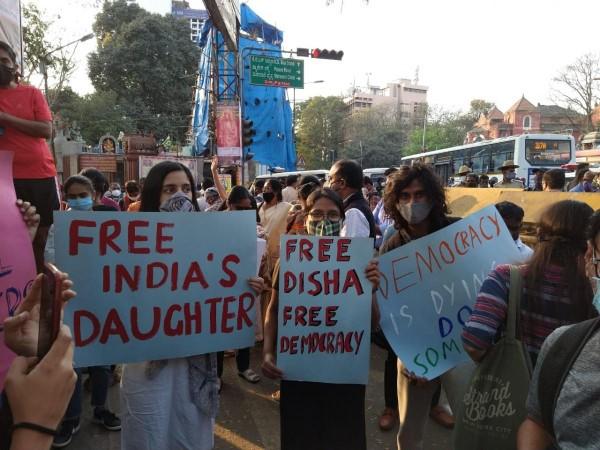Amid widespread anger and disbelief across the country over the latest arrests of activists, the Delhi Police on Monday evening held a press conference and blamed Nikita Jacob and her associates Shantanu and Disha Ravi for devising and spreading the controversial 'toolkit' on social media, which detailed digital support for the ongoing farmers' protest in collaboration with pro-Khalistani elements.
The toolkit document titled 'Global farmers strike and global day of action, 26 January' has created a lot of buzz and drew global attention, especially after it was shared by climate activist Greta Thunberg.

Delhi Police issues statement
Prem Nath, Joint Commissioner of Police, Cyber Cell of Delhi Police, told the press that an investigation into the 'toolkit' mystery divulged that the three were the creators of the concerned document.
"Since November 27, 2020, a large number of farmers have been protesting at three borders of Delhi and from time to time they had engaged in various activities. In this context, during the tractor rally held on January 26, 2021, large scale violence was witnessed at various places in Delhi. And the same was handled by the Delhi police with utmost restraint. And after 26th Jan incident, a large number of instances of fake news and manipulated or edited videos instigating disaffection and misleading propaganda post were spreading on the social media," Nath said.
"On February 4, while monitoring the social media, we came across a Google document titled 'Toolkit' on Twitter. Initial investigation of this document prevailed that it was created by a pro-Khalistani group Poetic Justice Foundation and people associated with it. One portion of the document mentioned action points named 'Prior Action', concerning a digital strike through hashtags on January 26, tweetstorm on January 23 onwards, and physical action on January 26," he added.
Meanwhile, the second part of the document mentioned tasks such as "disruption of India and targeting Indian embassies abroad," the police said further.
The official also clarified that the points mentioned in the toolkit and physical developments which have been witnessed in the national capital in recent days clearly point out to the fact that the action plan was executed on the ground in a copycat manner.
Followingly, the Delhi Police had registered an FIR in connection with the toolkit case and a related investigation was carried on by CyPAD.
Detention for peaceful dissent

During the investigation, many screenshots of the toolkit were probed and a search warrant was then obtained from the court on February 9 against Nikita Jacob, one of the editors of the toolkit. The police said that her house was searched and two laptops and one iPhone were seized.
Further probe found that she along with her associates Shantanu, who is an engineer and a native of Beed district in Maharashtra, as well as Disha had created the document.
"The email account created by Shantanu is the owner of the document while all others are its editors," the police said.
Shockingly, the Delhi police named a Canada-based woman, identified as Puneet for connecting these people to the Khalistani group and through them created the toolkit document. In addition, Nikita and Shantanu had also attended a video meeting with the group and chalked out the modalities of the document on February 11.
However, regarding the controversy surrounding Disha's arrest in Bengaluru, the police said that a team had examined her phone and extracted highly incriminating information which further proved that the three people had created the toolkit document.
"Disha had sent the toolkit to Greta Thunberg on Telegram. The main aim of the toolkit was to create misinformation and disaffection against lawfully-elected (Indian) government," Nath told the press.
Meanwhile, another name that has cropped up during the 'toolkit' investigation is Peter Fredrick, who police said had devised the social media strategy for the toolkit. As per reports, it said that Fredrick has been on the radar of the Indian security agencies since late 2006 after he was noticed with Bhajan Singh Bhinder, alias Iqbal Chowdhury, who has been a proponent of K2 desk of Pakistan's ISI.

















